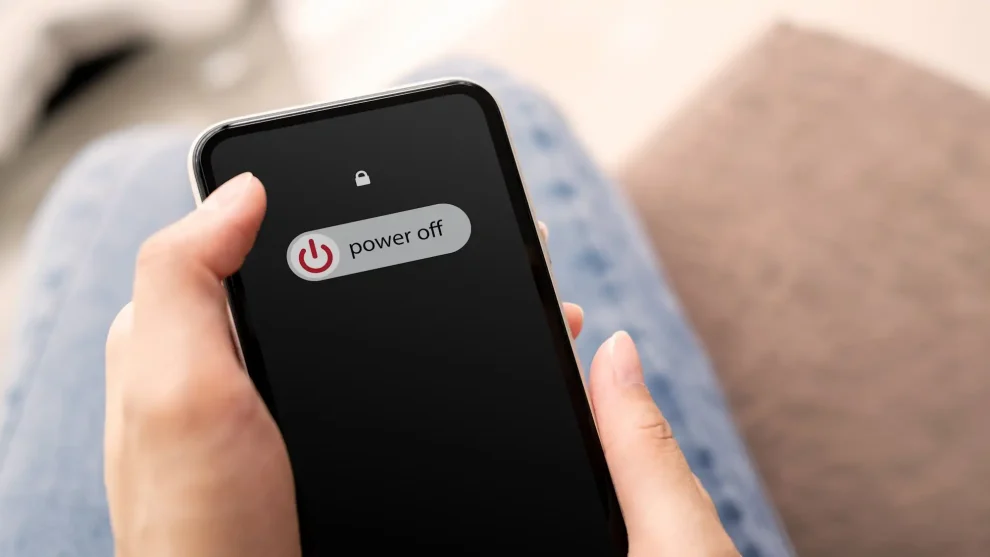Public service announcement (PSA), the National Security Agency (NSA) advised smartphone users to regularly restart their devices. While this advice might seem mundane or even paranoid to some, the reasoning behind it goes beyond mere security concerns. In this blog post, we’ll explore the often-overlooked benefits of rebooting your smartphone and delve into why the NSA’s recommendation holds more weight than you might think.
The Hidden Benefits of Rebooting Your Phone
Rebooting your phone offers a plethora of advantages that extend far beyond security. Here are some of the key reasons why regularly restarting your device is a smart move:
- Boosting Performance: As you use your phone, it accumulates temporary data from running apps, background processes, and downloaded files. This data can clog up your phone’s RAM (Random Access Memory), which is crucial for smooth operation. By rebooting, you clear this temporary data, freeing up RAM and potentially experiencing a noticeable performance boost.
- Extending Battery Life: Just like RAM, temporary data can also impact your phone’s battery life. Clearing this data through a reboot allows your phone to run more efficiently, potentially squeezing out extra hours of battery life between charges.
- Resolving App Issues: Apps can sometimes encounter bugs or glitches that persist until the app itself is restarted. By rebooting your device, you essentially restart all running apps, potentially fixing these temporary issues and ensuring smoother app performance.
- Preventing Crashes and Freezes: When temporary data accumulates excessively, it can lead to app crashes and system freezes. Regular restarts help prevent these frustrating occurrences by keeping your phone’s system clean and efficient.
- Implementing Security Updates: Many smartphone updates contain security patches that address vulnerabilities and exploits. However, these patches might not take full effect until you restart your device. By rebooting, you ensure that the latest security updates are applied, potentially safeguarding your phone from emerging threats.
The NSA’s Perspective: Rebooting as a Security Measure
From the NSA’s standpoint, regular phone restarts serve as a crucial security measure. Here’s how rebooting can potentially bolster your phone’s defenses:
- Disrupting Malicious Activity: Certain malware or exploits can take advantage of vulnerabilities in running applications. By rebooting, you terminate these applications, potentially disrupting any ongoing malicious activity.
- Exposing Hidden Threats: Malicious software might sometimes disguise itself as background processes. Rebooting terminates all processes, potentially exposing and eliminating hidden threats.
- Maximizing Security Patch Effectiveness: As mentioned earlier, rebooting ensures that the latest security updates are fully implemented, closing potential security gaps and strengthening your phone’s defenses.

Beyond Rebooting: A Comprehensive Security Strategy
While rebooting offers a layer of security, it’s just one aspect of a comprehensive smartphone security strategy. Here are some additional practices to consider:
- Prompt Updates: Software updates often contain critical security patches, so installing them as soon as they become available is essential.
- Strong Authentication: Using strong, unique passwords and enabling two-factor authentication adds significant layers of protection for your phone and its data.
- Trusted App Sources: Malicious apps can pose a significant security risk. Stick to reputable app stores like Google Play or the App Store to minimize the risk of downloading malware.
- Phishing Awareness: Be cautious about clicking on suspicious links or downloading attachments from unknown senders, as phishing emails and text messages are common tactics used to steal personal information.
- Security Apps: Consider using reputable security apps that offer additional protection against malware, phishing attacks, and unauthorized access.
The Bottom Line: Rebooting for a Healthier, More Secure Phone
While the NSA’s advice on rebooting might seem like a basic security measure, its benefits extend far beyond just security. Regularly restarting your phone can significantly improve performance, enhance battery life, and ensure that your device is running smoothly and securely.
From the NSA’s perspective, rebooting serves as a proactive measure to mitigate potential vulnerabilities and disrupt malicious activities. However, it’s important to remember that rebooting is just one piece of the puzzle when it comes to maintaining a secure smartphone.
By combining regular restarts with other best practices like prompt updates, strong authentication, trusted app sources, phishing awareness, and security apps, you can create a robust security posture for your device.
So, the next time your phone starts feeling sluggish, or you suspect something might be amiss, don’t hesitate to give it a quick reboot. This simple action can have a profound impact on your device’s performance, battery life, and overall security.
In a world where our smartphones hold a wealth of personal information and serve as gateways to our digital lives, taking the NSA’s advice to heart and embracing the power of the reboot can go a long way in ensuring a healthier, more secure mobile experience.
















Add Comment